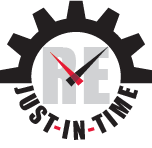Requirements engineering (RE) in agile and open source settings is quite different than RE in more conventional development settings. In particular, these requirements tend to be more ad-hoc and ‘just-in-time’, developed as needed rather than upfront. Requirements might be called user stories, features, or even tasks. The differences become even more evident when it comes to optimal management of software quality demands and the integration of non-functional requirements into the software life cycle.
This year, the Just-in-Time requirements engineering workshop will therefore put a particular focus on current challenges that agile software development teams face when integrating non-functional requirements into their practices. For instance, how are they represented in the backlog (as user stories, as acceptance criteria, …)? How are they integrated into testing strategies? The theme is accordingly “Dealing with Non-functional requirements in Agile Software Development”. The workshop aims to gather researchers and practitioners in order to share their experiences, forge new collaborations, and provoke innovative ways to tackle just-in-time requirements.
Programme
| Time | Activity in the program | Moderator/Presenter |
|---|---|---|
| SESSION 1: Keynote | ||
| 9:00 – 9:15 | Opening. Introduction of participants | Neil |
| 9:15 – 10:40 | Keynote: Jari Partanen (Bittium): "Towards Continuous Deployment in the Embedded Software Domain and B2B Context" | Xavi |
| 10:40 – 11:00 | Coffee-break | |
| SESSION 2: Methods and Frameworks | Tanmay Bhowmik | |
| 11:00 - 11:15 | Agile with Animals: Towards a Development Method | Dirk van der Linden and Anna Zamansky |
| 11:15 - 11:30 | Quality Requirements in Agile as a Knowledge Management Problem: More than Just-in-Time | Eric Knauss et al. |
| 11:30 - 11:45 | Behavior-Driven Requirements Traceability via Automated Acceptance Tests | Garm Lucassen et al. |
| 11:45 - 12:00 | An Agile Method for Managing Requirements to Improve Learning and Adaptability | Woogon Shim and Seok-Won Lee |
| 12:00 - 12:15 | A Regression Model Based Approach for Identifying Security Requirements in Open Source Software Development | Wentao Wang et al. |
| 12:15 – 12:30 | Discussion | |
| 12:30 – 14:00 | Lunch | |
| SESSION 3: Empirical Methods and Studies | Neil Ernst | |
| 14:00 - 14:15 | Refinement and Resolution of Just-in-Time Requirements in Open Source Software: A Case Study | Anh Do and Tanmay Bhowmik |
| 14:15 - 14:30 | Data-driven Requirements Engineering in Agile Projects: The Q-Rapids Approach | Xavier Franch et al. |
| 14:30 - 14:45 | Towards a Requirements Communication and Documentation Guideline for Agile Teams | Anne Hess, Philipp Diebold and Norbert Seyff |
| 14:45 - 15:00 | Automated Support to Capture Verbal Just-in-Time Requirements in Agile Development: A Practitioner View | Corey Hollis and Tanmay Bhowmik |
| 15:00 - 15:15 | Agile Practitioners’ Understanding of Security Requirements: Insights from a Grounded Theory Analysis | Evenynke Terpstra, Maya Daneva and Chong Wang |
| 15:15 – 15:30 | Discussion | |
| 15:30 – 16:00 | Coffee-break | |
| SESSION 4: Discussion and conclusions | ||
| 16:00 – 16:45 | Break-out groups | TBD |
| 16:45 – 17:15 | Summary of results. Plenary discussion | Neil |
| 17:15 – 17:30 | Next steps. Closing | Xavi |
Topics of Interest
- requirements in open source software
- lightweight techniques for capturing and representing requirements
- iterative reasoning about requirements satisfaction
- developer understanding of requirements in agile development
- making requirements useful throughout the software lifecycle
- slicing user stories into iteration-sized components
- defining ‘done’
- acceptance testing requirements
- specification by example and behavior-driven development
- tracing and evolving just-in-time requirements
- empirical studies on just-in-time requirements
Submissions
![]() CFP Flyer
We invite submissions in the following categories.
CFP Flyer
We invite submissions in the following categories.
- position papers (4 pages), intended to stimulate discussion, particularly by the breakout session
- research summaries (4 pages), intended to make all participants aware of existing and ongoing research in this area.
- experience reports (4 pages), intended to share experiences and lessons learned made in industrial environments.
Submit papers via EasyChair: https://easychair.org/conferences/?conf=jitre2017 and follow the IEEE formatting instructions.
Key Dates
- Paper Submission
Friday, June 09, 2017Friday June 16, 2017 (AoE) - Paper Notification Friday, June 30, 2017
- Camera Ready Due Sunday, July 16, 2017
- Workshop Tuesday, September 5, 2017
Format
This 1-day workshop will consist of an opening keynote, followed by morning presentations. Post-lunch, we will have one more paper session and then breakout sessions in order to develop a ranked list of open problems. The final session will group back all workshop participants to summarize their discussion results, collect feedback, and plan future events and activities.
Anticipated Outcomes
This initial workshop on just-in-time RE aims to gather researchers working in this area in order to discover a set of open research problems and define a position statement outlining the ways in which just-in-time RE differs from traditional RE. Some characteristics like lightweight representation and evolutionary refinement of requirements are identified in 1, 2. However, we anticipate wide, varied, open, and lively discussions reshaping the landscape and themes of just-in-time RE in the workshop. It is also our anticipation that the workshop provides a venue for researchers and practitioners to share their experiences, forge new collaborations, and provoke innovative ways to tackle just-in-time requirements.
Organization
See the organization page.
Past Workshops
- JITRE-2015, outcomes report (page 1, page 2)
References
[1]: Neil A. Ernst and Gail Murphy, “Case Studies in Just-In-Time Requirements Analysis”, International Workshop on Empirical Requirements Engineering (EmpiRE), Chicago, IL, USA, September 2012, pages 25-32.
[2]: Nan Niu, Tanmay Bhowmik, Hui Liu, and Zhendong Niu, “Traceability-Enabled Refactoring for Managing Just-In-Time Requirements”, International Requirements Engineering Conference (RE), Karlskrona, Sweden, August 2014, pages 133-142.
